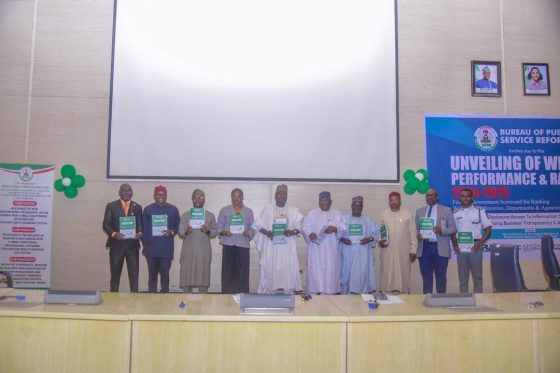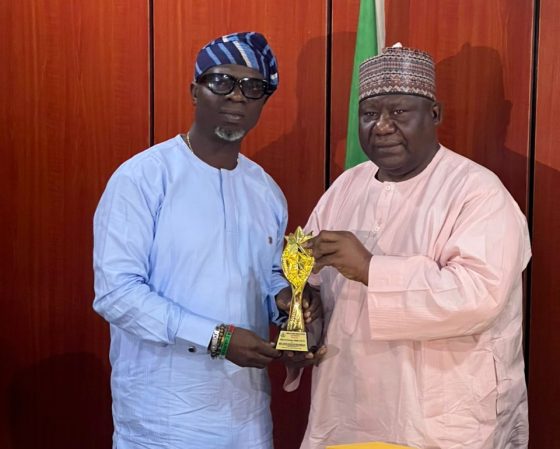Newsflash
C/River Partners BPSR, W/Bank on Governance Reforms, Development Agenda
|
BPSR, NIPR COLLABORATE TO BUILD COMMUNICATION CAPACITY OF CEOS OF GOVERNMENT PARASTATALS
|
BPSR DG Reaffirms Commitment to Strengthening Fiscal Responsibility Code as FRC Calls for Swift Validation
|
BPSR DG, Mr. Dasuki Arabi, Receives Fellowship Award from Accredited Management Trainers’ Association
|
Post-Retirement Mortality: BPSR, PenCom Express Concern Over Rising Deaths Among Civil Servants
|
Coordination Management And Integration Of The Reform Programme
- Home
- Coordination Management And Integration Of The Reform Programme
Press Release
Coordination, Management and Integration of the Reform Programme
The National Council on Reforms has the President of Nigeria as Chairman, and it is the apex of the institutional machinery for reform implementation and coordination. The Steering Committee on Reforms, among others, is saddled with the functions of providing guidance and technical leadership in reform design and implementation; initiating action on reforms at different levels, and; ensuring the monitoring and evaluation of reform implementation for impact and effectiveness.
The Bureau of Public of Service Reforms serves as the secretariat to both the National Council on Reforms and the Steering Committee on Reforms, and in that capacity it serves as the coordinating secretariat for all the sectoral reforms of government.
More importantly, the Bureau of Public Service Reforms coordinate, monitor and evaluate reform implementation activities, conduct research on implementation efforts and presents best practices and; provide advisory and technical support services to change management teams and working groups.
As part of the institutional arrangement for the coordination and focus of reform implementation in Nigeria, the reforms are being driven at different fronts as follows:
- Budget at the Budget Office of the Federation
- Public Procurement by the Bureau of Public Procurement
- Accounts and Audits at the Offices of the Accountant General of the Federation and Auditor General of the Federation
- Tax reforms at the Federal Inland Revenue Service (FIRS)
- Information technology and e-Government at the National Information Technology Development Agency (NITAD)
- Ports and Customs reforms at the Nigerian Customs Service
- Anti-Corruption at Independent Corrupt Practices and Other Related Offences Commission (ICPC)
- Economic and Financial Crimes at the Economic and Financial Crimes Commission (EFCC)
- Public Service Reforms at the Bureau of Public Service Reforms (BPSR)

Federal Secretariat Complex, New Extension, Plot 04, Phase II, Block D, 3rd Floor, Shehu Shagari Way,
GARKI, ABUJA, NIGERIA.
Newsletter
Subscribe to the BPSR newsletter to receive the latest updates on public sector reforms, research publications, events, and policy insights.


